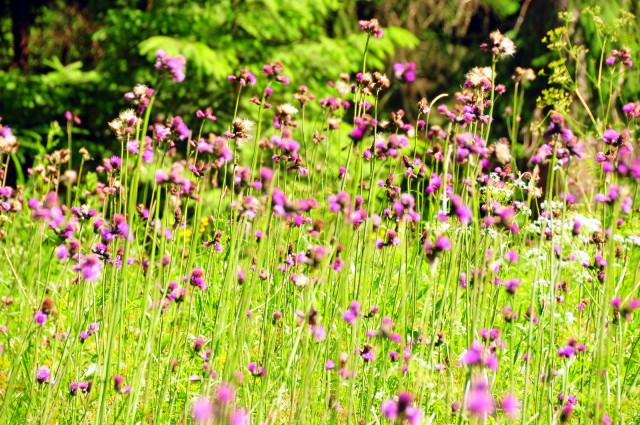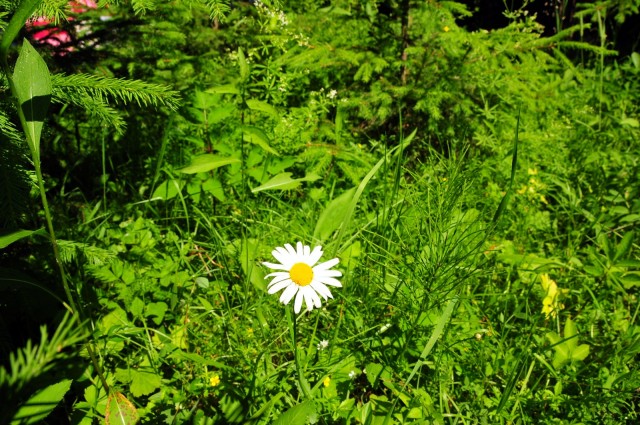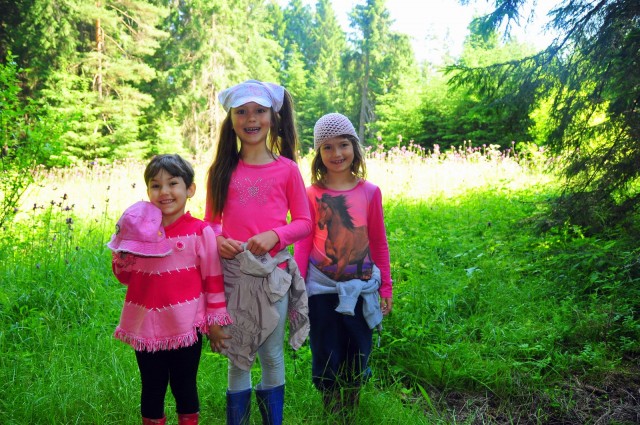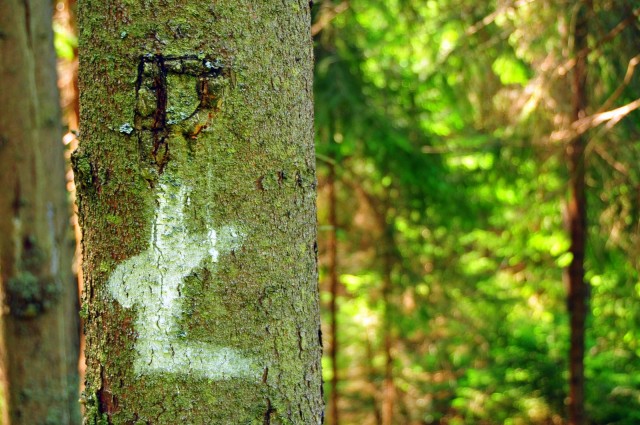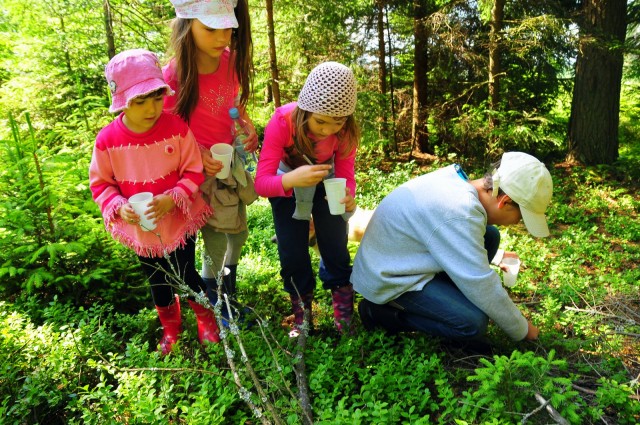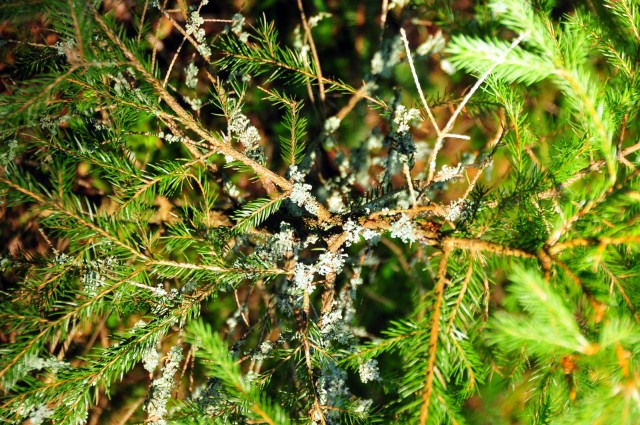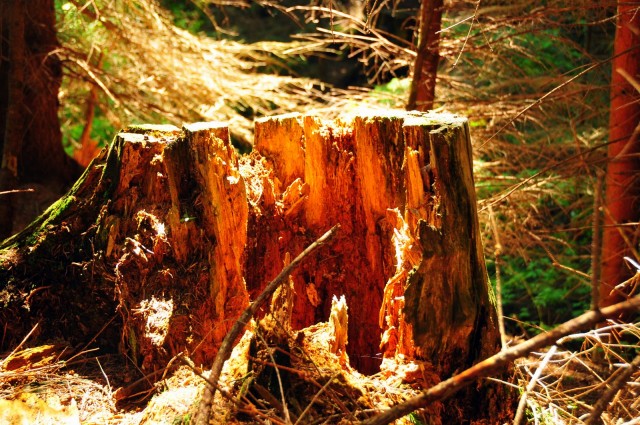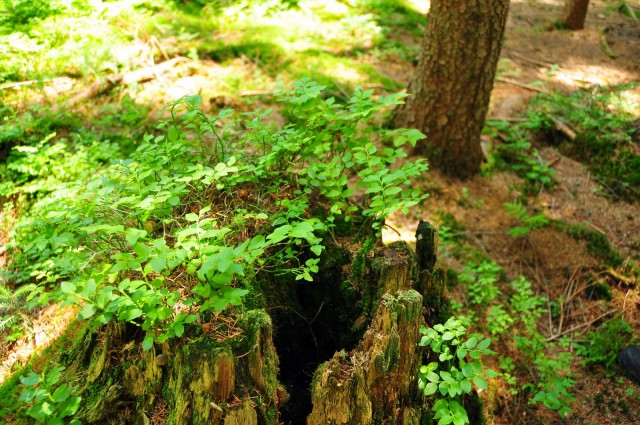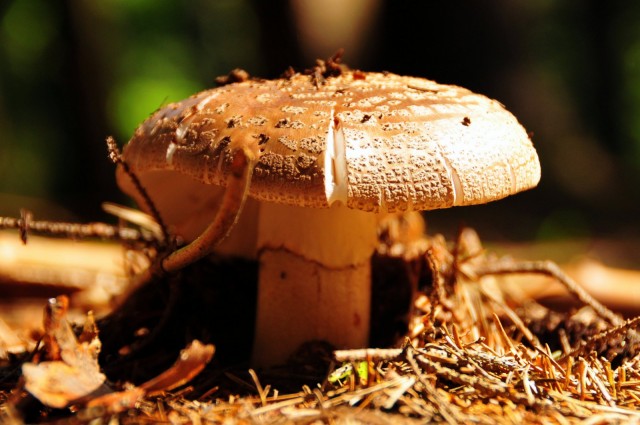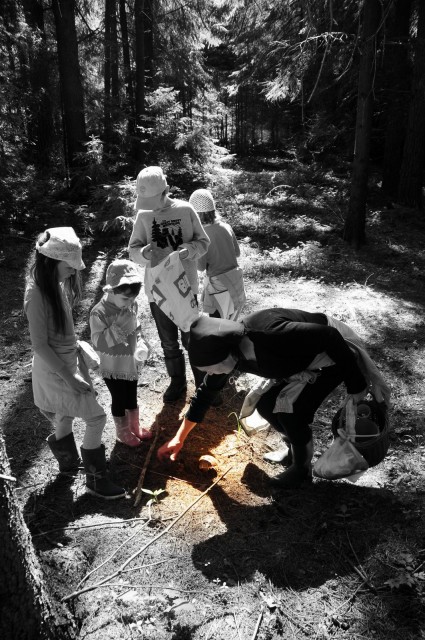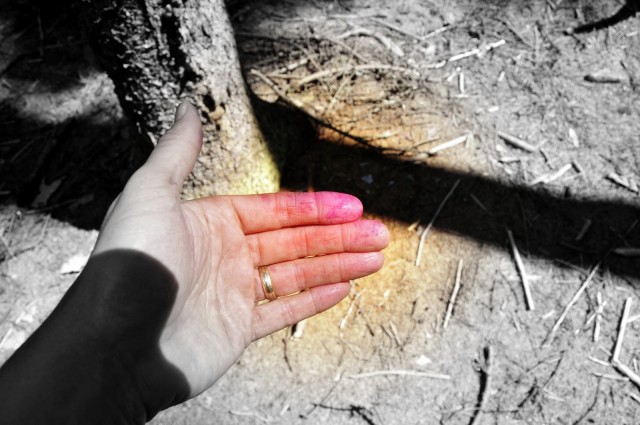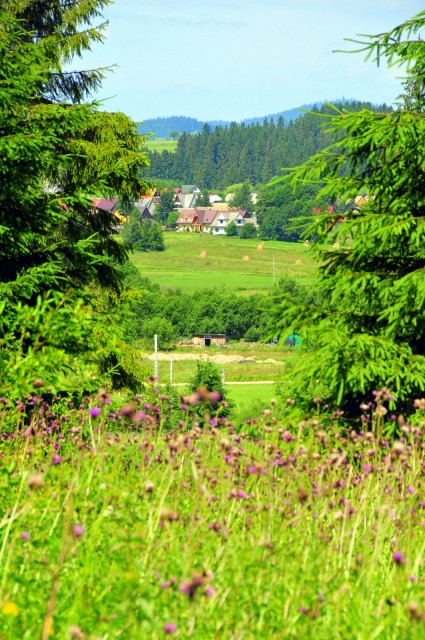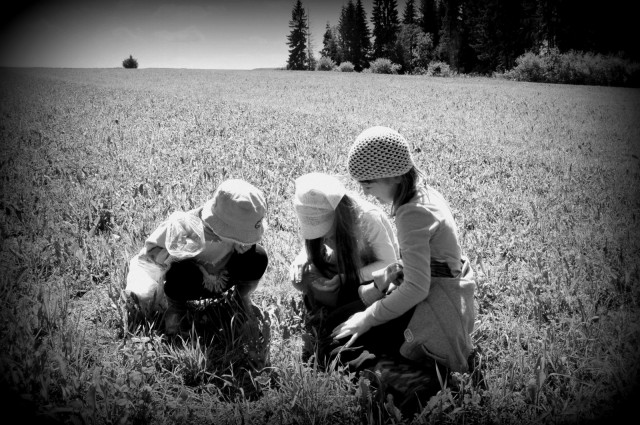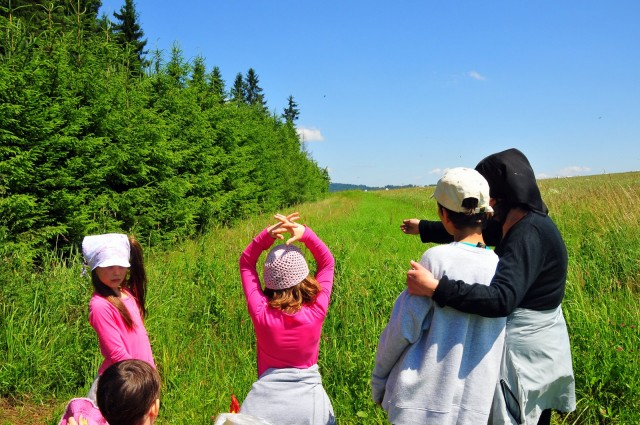Babcia is not a fan of technology: she really doesn’t get along well with much of anything electronic. She once almost set fire to ginger snaps in the microwave when she and Dziadek first bought one because she didn’t know how long to set the timer and didn’t know she could stop the process in mid-course. She leaves the settings of the washing machine untouched and dares, simply dares, anyone to mess with it. She hates computers except for their usefulness in talking to family overseas.
Take Babcia to a forest, though, and she instantly becomes an unending source of information. There isn’t a tree, plant, or bush she can’t name. She’s forgotten more about wild mushrooms than I’ve ever known. She can point out a hundred and one herbs and explain what they’re good for, what they heal, what they taste like. She can show you where there should be mushrooms soon. She remembers where there were mushrooms last year, the year before, the year before, and so on, seemingly unendingly.
She is simply impressive.
And so yesterday, as we were planning our day’s events (for with four children in the house, everything needs to be planned), Babcia decided that, since we don’t have power again today (the fourth day in two weeks), we would go to the forest.
“Maybe we’ll find some mushrooms. There’ll probably be some blueberries,” she explained. “And if not, we’ll have a pleasant walk in the woods.”
We go to a small forest between Jabłonka and Lipnica Mała.
As we head out, Babcia explains that almost everyone in the family owns a bit of forest around here. “Over there is K’s bit,” she says, pointing vaguely to her right. “W’s forest of saplings is over there,” she says, waving her hand further to the right. But we head into a forest that belongs to someone whose last name begins with Ł. We know this because it’s painted on seemingly all the trees. Perhaps at some point there was a disagreement about who owned what, and Mr. Ł decided to take matters into his own hands.
We immediately stumble upon a patch of wild blueberries. Incredibly small and light blue, the berries taste unlike anything one could find in a store. There are a thousand and one flavors in each berry: a bit of sweetness rounded off with a tangy finish and a warm, earthy, slightly even metallic undertone. At first, the blueberry bucket remains completely empty: all berries to straight to eager mouths. As we continue deeper into the forest, though, we find a calizna — an area completely untouched, with berries simply everywhere. “O Boze, daj nam calizna!” Babcia declares as she begins pulling berry after berry from the seemingly endless bushes.
We continue through the forest, making discoveries along the way. The kids see how the forest, in its own dying, performs a natural miracle of self-resurrection. Death provides foundations for new life. Nature removes the weaker trees that then nourish new plants, stronger plants. And if not, nature will take care of them, too.
Still, though, an hour or so into the outing, we haven’t found a single mushroom. Suddenly, there it is, at the base of a tree — our first mushroom. Unfortunately, it’s just a common muchomorek. Edible, but only once. “All mushrooms are edible,” Dziadek once explained. “It’s just that some mushrooms are only edible once.”
Babcia patiently explains that even though the mushroom is inedible, it’s still useful. “It’s part of the forest, and it’s useful to other creatures. So leave it alone,” she instructs when a cousin suggests we could smash it for the fun of it.
In the end, we all have blue fingers from the berries but not a single mushroom.
Still, that’s not what the trip was about.
It was about the small surprises and discoveries that childhood can bring, the big and the small. Finding a Ladybug in a field.
Or seeing for the first time the square of forest your grandfather gave you.
